Horse Chestnut
Latin Name : Aesculus hippocastanum
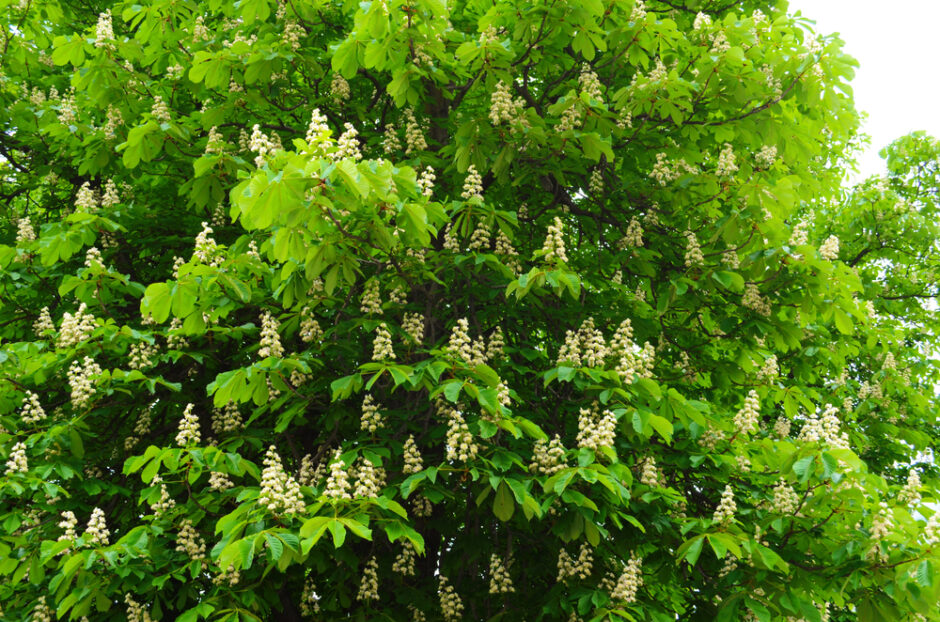
Tree in Flower
Probably one of the showiest of our larger deciduous trees, the Horse Chestnut can famously produce huge quantities of “Conkers” for kids to play with, or for the rest of us to put on window sills to ward off SPIDERS.
One thing you can be absolutely sure of (until climate change turns everything upside down), is that if a Horse Chestnut is in full flower then the month is MAY.
If you find yourself watching a film and the story is set in July, but there is a Horse Chestnut in flower in the background, the continuity folks have slipped up.
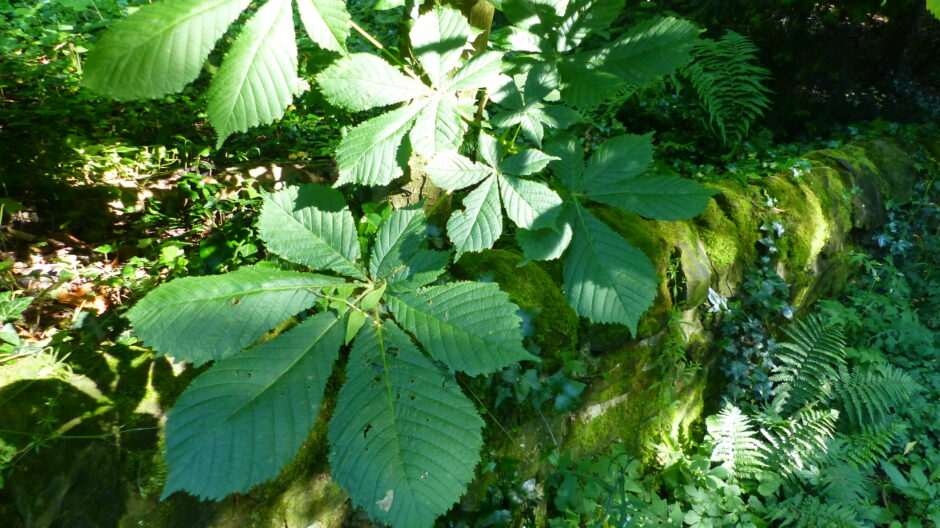
The Compound Palmate Leaf
The fancy description of the leaf means that it is all of the leaflets (3 – 5 usually) that grow on one stalk that makes up one leaf.
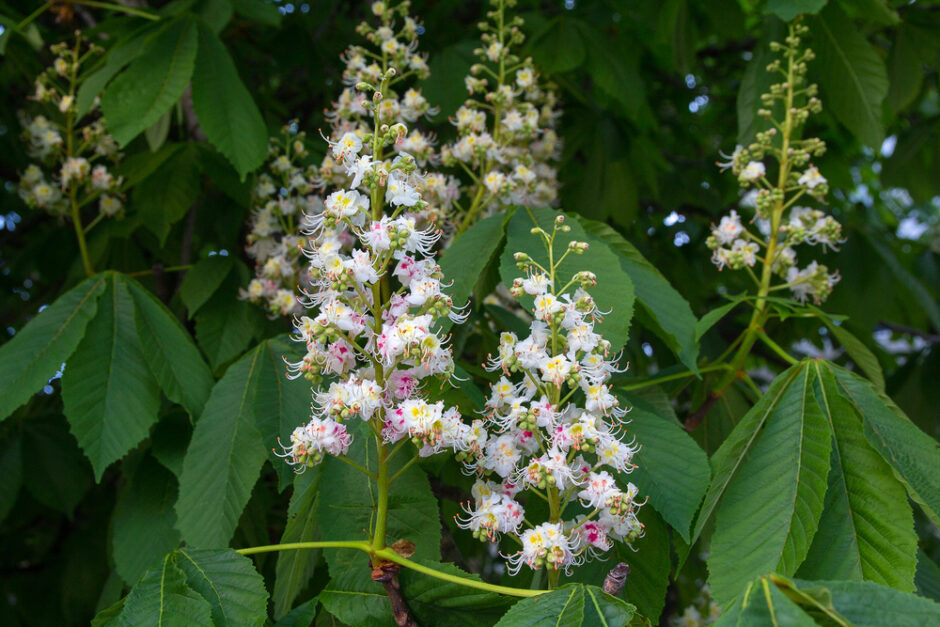
Flower Panicle held vertically like candle sticks
This close up of the panicle of flower shows something you may have never noticed before. Some of the florets have yellow centres and some have red.
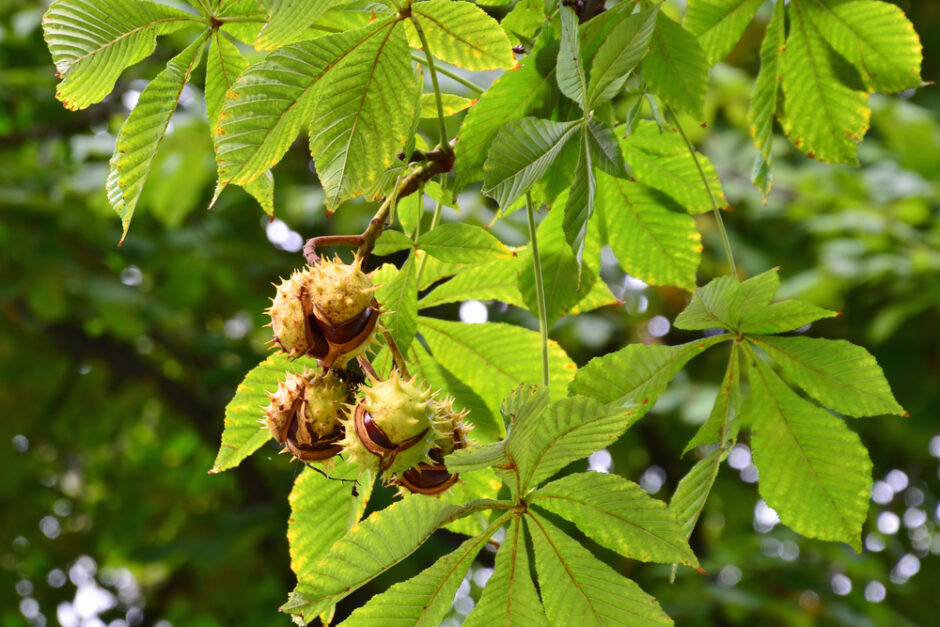
Conkers on show
Once the flowers have been pollinated and the seed starts to grow, it’s not long before they become evident on the tree.
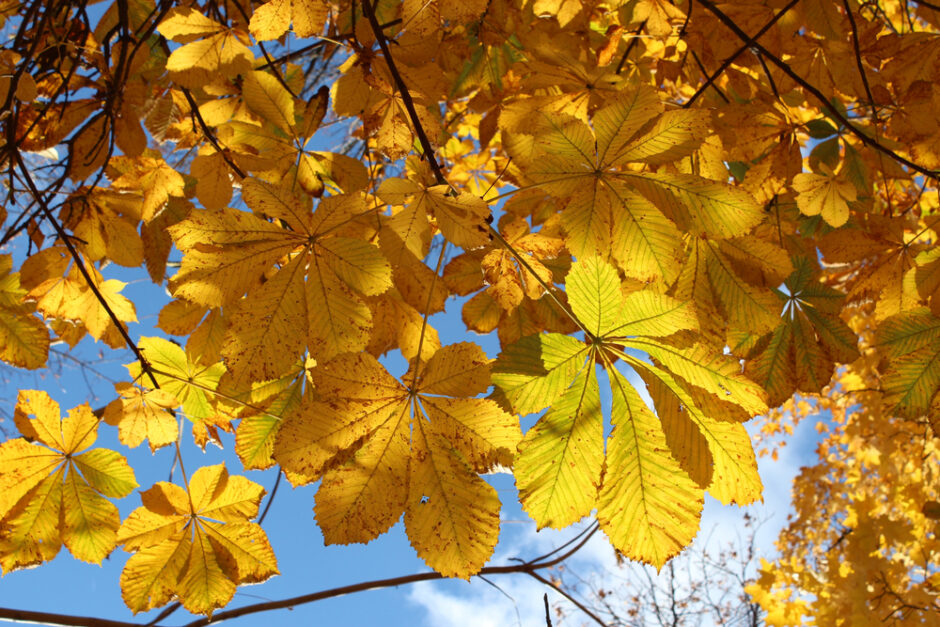
Golden Autumn Colour
Once the seed is ripe and the season is drawing to a close, the green pigment dies off in the leaf and gives us a golden glow before leaf-fall.
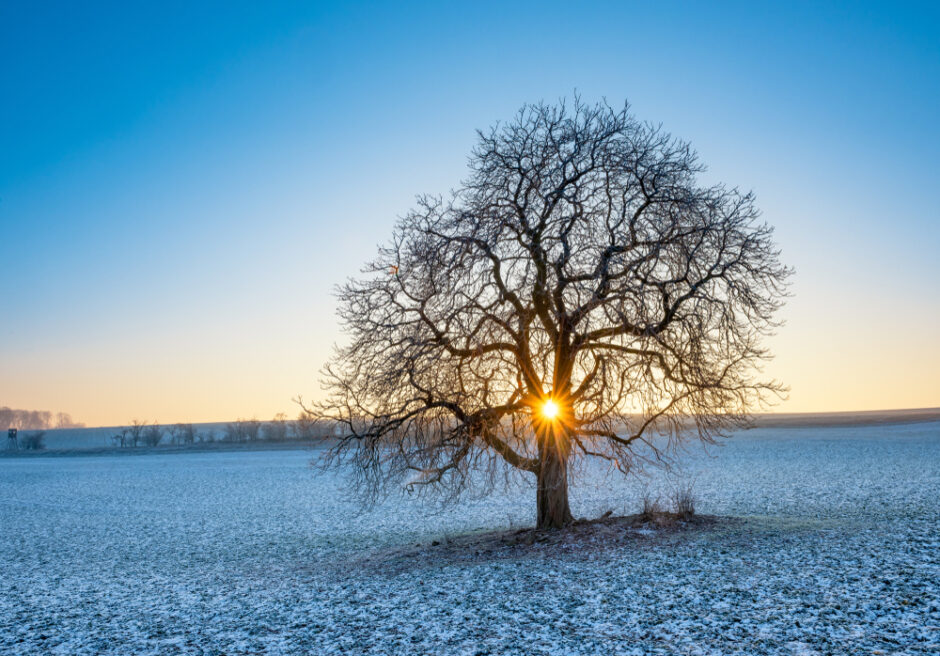
The autumn leaf
